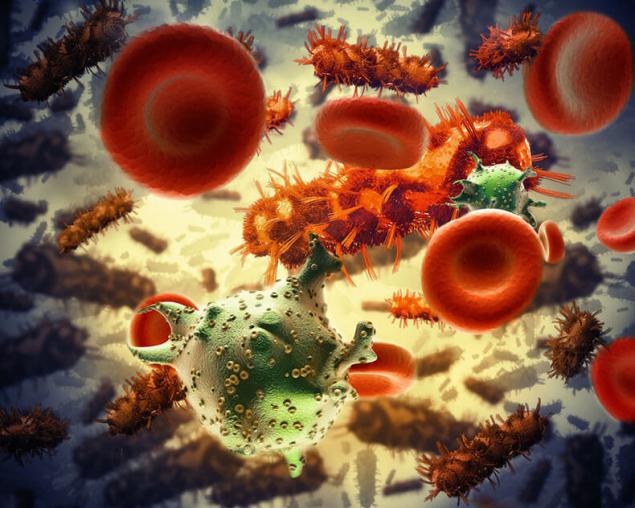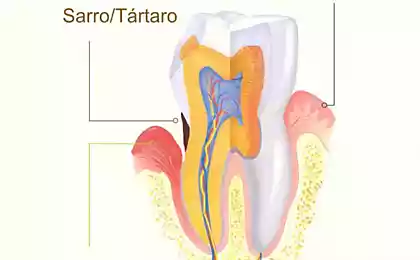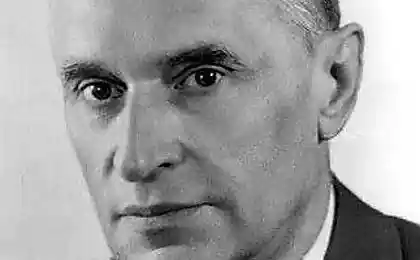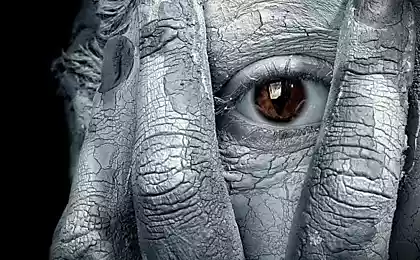453
ATTENTION! Factors of destruction of the body
These reasons lead to the emergence of countless different diseases, although the basis of them all will be the same factors of destruction. The negative effect is on all systems of the body.

1. The violation of the energy exchange — a break in the chain of reactions that provide cells with energy. As a result, it loses energy potential and protection against adverse factors
2. The metabolic disorders — violation of the chemical reactions that occur in living organisms to maintain life. The metabolism leads to weakening of cells and the beginning of pathological processes.
3. The lack of cellular power — low absorption or insufficient intake of micro - and macroelements, vitamins, amino acids, minerals, enzymes, fatty acids, necessary for normal functioning of organs and systems. The result is malnutrition of the cells become vulnerable and fail to fulfill their function, which is the beginning any disease.
Our food is becoming more and more refined, canned, flavored, so-called “improved”. But the body needs nutrients and building materials for life and of tissue regeneration, so many ways, food is not digested and cannot be withdrawn. This leads to excessive obesity, allergic and toxic reactions.
4. Dehydration is a real problem currently, because no tea, no coffee, no fruit drinks, and especially carbonated drink is not water, we need our cells. the body has to break the bond to separate the water molecules. But that's not enough, because the cells can absorb only water with a certain acid-alkaline balance, surface tension, structure, redox potential.
To ensure optimal conditions to spend a huge amount of energy, and if not, the water stagnates in the intercellular space, forming a swelling, and the cells are dying, not being able to eat, to clean, to multiply, causing disease. The blood becomes thick, viscous, malacologia. In the end, aging is nothing like dehydration!
5. Unfavorable ecological situation. Polluted air and water, the over-saturation of electro-magnetic radiation, lead to the fact that the body gets a huge amount of toxic elements and free radicals that destroy the cells.
6. Free radicals — unstable atoms and compounds with unpaired electrons. In an effort to gain the missing electron, they rip it from other molecules, acting as aggressive oxidants. So there is a destructive chain reaction of oxidative stress, which destroys living cells. Free radicals destroy anything that gets them "by hand": molecules, cells, shreds of DNA, causing cell mutation.
7. Toxins — poison of biological origin (bacterial, plant or animal) which, acting at the cellular level, inhibits physiological function that leads to various diseases. Toxins accumulate not only in the intestine, as suggested by many! They accumulate in the tissues of liver, kidney, adipose tissue, blood, lymph, etc. That's not all! Over the years, the toxins from the tissues begin to penetrate into the cells, and this is the path to the destruction of the body, to serious irreversible diseases.
8. Inflammation is a pathological process that occurs in response to damage to cell structures in the body or under the action of pathogenic stimulus. The process manifests itself in the reactions directed on the removal of cell breakdown products and toxins.
9. Stress — body's reaction to extreme factor or a threatening situation, associated with the production of the hormone adrenaline. The main function of adrenaline is to mobilize forces of the body for survival. Stress has a negative effect on sensitive nerve tissue located in various organs and tissues, affecting and destroying them.
10. A sedentary lifestyle leads to the fact that the lymph flowing from the bottom to the top, can't move normally, because its movements provide muscle contraction. This means that the body salakavala, the toxins accumulate in the organs.
11. Bad habits, like deliberate destruction of his body, his teamwork.
12. Hereditary factors. In fact, they occupy only 5% of the total list of causes of diseases.
Over the last hundred years has drastically changed the causes of death of people. If in the XIX — early XX century, people died, partly from injuries and epidemics, but mostly from old age (80-100 years), now mostly from chronic diseases (50-70 years).published
See also: Products that absolutely can not eat on an empty stomach
You're not sick – you oxidized!
P. S. And remember, only by changing their consumption — together we change the world! ©
Join us in Facebook , Vkontakte, Odnoklassniki
Source: vk.com/wall-23903469?w=wall-23903469_4246

1. The violation of the energy exchange — a break in the chain of reactions that provide cells with energy. As a result, it loses energy potential and protection against adverse factors
2. The metabolic disorders — violation of the chemical reactions that occur in living organisms to maintain life. The metabolism leads to weakening of cells and the beginning of pathological processes.
3. The lack of cellular power — low absorption or insufficient intake of micro - and macroelements, vitamins, amino acids, minerals, enzymes, fatty acids, necessary for normal functioning of organs and systems. The result is malnutrition of the cells become vulnerable and fail to fulfill their function, which is the beginning any disease.
Our food is becoming more and more refined, canned, flavored, so-called “improved”. But the body needs nutrients and building materials for life and of tissue regeneration, so many ways, food is not digested and cannot be withdrawn. This leads to excessive obesity, allergic and toxic reactions.
4. Dehydration is a real problem currently, because no tea, no coffee, no fruit drinks, and especially carbonated drink is not water, we need our cells. the body has to break the bond to separate the water molecules. But that's not enough, because the cells can absorb only water with a certain acid-alkaline balance, surface tension, structure, redox potential.
To ensure optimal conditions to spend a huge amount of energy, and if not, the water stagnates in the intercellular space, forming a swelling, and the cells are dying, not being able to eat, to clean, to multiply, causing disease. The blood becomes thick, viscous, malacologia. In the end, aging is nothing like dehydration!
5. Unfavorable ecological situation. Polluted air and water, the over-saturation of electro-magnetic radiation, lead to the fact that the body gets a huge amount of toxic elements and free radicals that destroy the cells.
6. Free radicals — unstable atoms and compounds with unpaired electrons. In an effort to gain the missing electron, they rip it from other molecules, acting as aggressive oxidants. So there is a destructive chain reaction of oxidative stress, which destroys living cells. Free radicals destroy anything that gets them "by hand": molecules, cells, shreds of DNA, causing cell mutation.
7. Toxins — poison of biological origin (bacterial, plant or animal) which, acting at the cellular level, inhibits physiological function that leads to various diseases. Toxins accumulate not only in the intestine, as suggested by many! They accumulate in the tissues of liver, kidney, adipose tissue, blood, lymph, etc. That's not all! Over the years, the toxins from the tissues begin to penetrate into the cells, and this is the path to the destruction of the body, to serious irreversible diseases.
8. Inflammation is a pathological process that occurs in response to damage to cell structures in the body or under the action of pathogenic stimulus. The process manifests itself in the reactions directed on the removal of cell breakdown products and toxins.
9. Stress — body's reaction to extreme factor or a threatening situation, associated with the production of the hormone adrenaline. The main function of adrenaline is to mobilize forces of the body for survival. Stress has a negative effect on sensitive nerve tissue located in various organs and tissues, affecting and destroying them.
10. A sedentary lifestyle leads to the fact that the lymph flowing from the bottom to the top, can't move normally, because its movements provide muscle contraction. This means that the body salakavala, the toxins accumulate in the organs.
11. Bad habits, like deliberate destruction of his body, his teamwork.
12. Hereditary factors. In fact, they occupy only 5% of the total list of causes of diseases.
Over the last hundred years has drastically changed the causes of death of people. If in the XIX — early XX century, people died, partly from injuries and epidemics, but mostly from old age (80-100 years), now mostly from chronic diseases (50-70 years).published
See also: Products that absolutely can not eat on an empty stomach
You're not sick – you oxidized!
P. S. And remember, only by changing their consumption — together we change the world! ©
Join us in Facebook , Vkontakte, Odnoklassniki
Source: vk.com/wall-23903469?w=wall-23903469_4246























